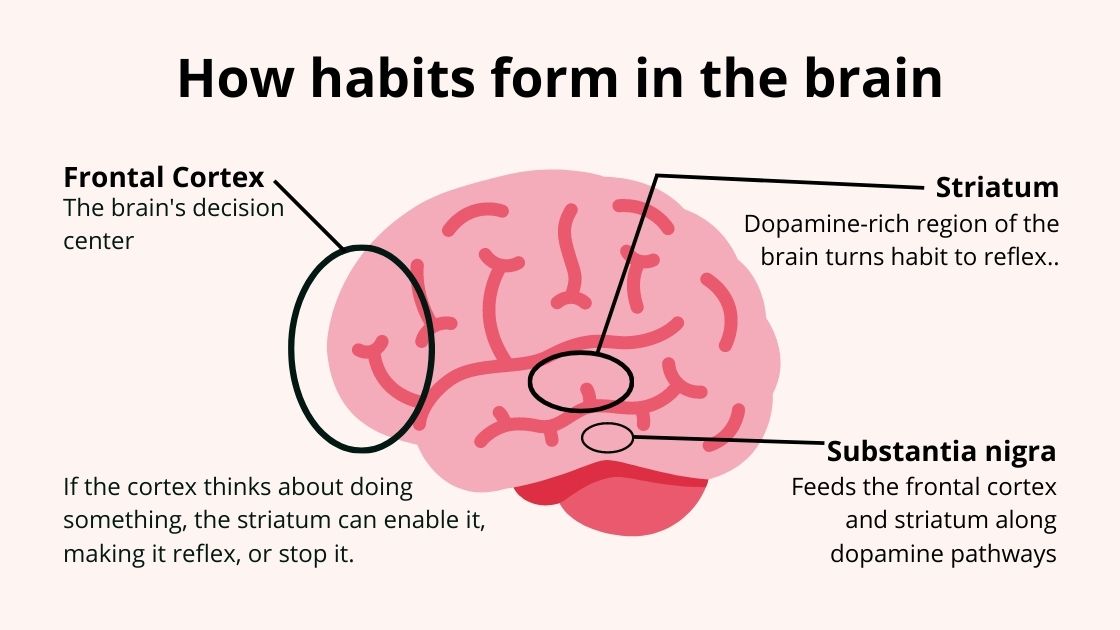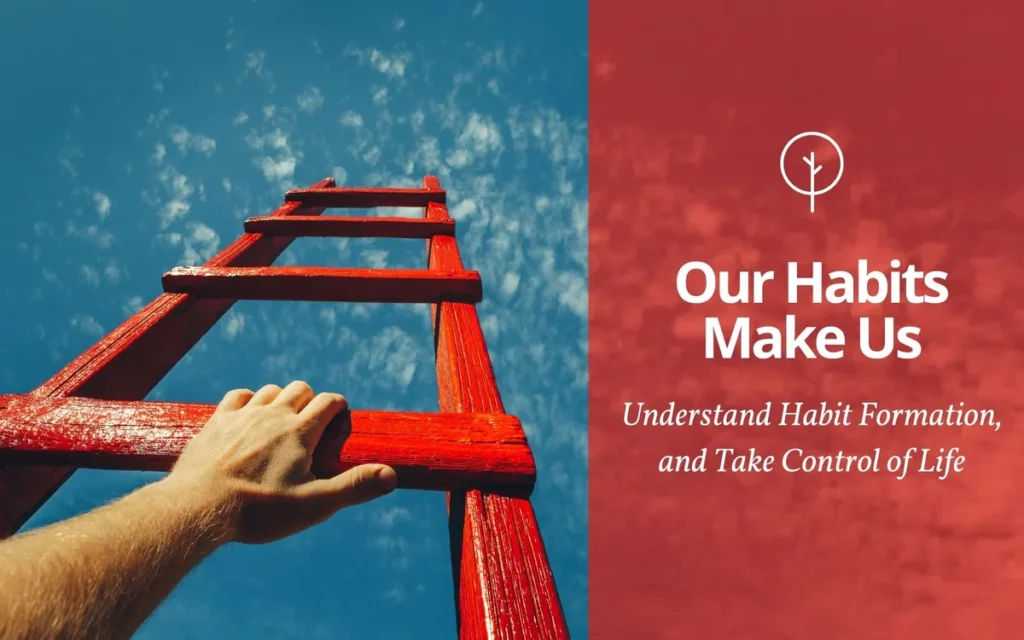From waking up and getting ready to wind down to bed, we have a routine ingrained in our brains. We usually function on auto-pilot while going about our daily tasks. However, each one of us has certain behaviors and actions unique to us that we are prone to doing.
Your behaviors and actions might not seem out of the ordinary to you. But, these are habits formed over a long time. It defines the way you live, work, and think. It is human nature to develop these routine actions for ease of living. Some are involuntary, whereas some are the result of imposed actions.
Habits make you efficient. It helps you navigate the world better and establish your goals faster. Once you get accustomed to a routine, it sticks with you for a long time, which might also be why you struggle with breaking bad habits or creating new ones. Yes! I am talking about many failed new year’s resolutions that we all make.
It might be your best intention to develop a better lifestyle for yourself. But, forming new habits and staying loyal to them can be challenging. Understanding habits and how and why we create them might be helpful. A piece of brief information, if not detailed, can help you dismantle your inhibitions. And develop sustainable healthy habits sooner. The word habit is very familiar. Since childhood, we have learned from elders to establish healthy habits.
We have incorporated specific actions into our daily routine from an early age. Most of which our parents or teacher might have taught us. Like, when you brush your teeth or pass pleasantries to people. These actions become second nature to us, and it would be strange not to follow them. Enforcing these habits might have been to either instill certain habits considered beneficial. Or to rewrite the ones that have developed into a negative aspect.
As kids, you might have been following specific actions that could have felt pushy. But as time passed, learning to develop these habits became a part of our being.
A Quick Definition
In clinical terms, habits are automatic. They are a bunch of repetitive responses learned by an organism for ease of living. When you face a similar situation repeatedly, your reaction to it becomes automatic.
A habit is a settled tendency. Or you can even say it is an acquired mode of behavior, which either becomes partially or entirely reflexive. Habitual behaviors are usually unnoticed by those engaging in them.
According to psychology researchers, actions that are involuntarily triggered as a response to alerts under certain circumstances can be linked to the performance of an individual.
How Are They Formed?

Habits are nothing but thoughts. When you reiterate those thoughts, they manifest themselves as a usual exercise. Behavior change or habits form to achieve a particular goal.
The routine that you are familiar with doesn’t involve any active thinking. An initial motive can cause a thought. This thought later translates into a behavior. And an action or behavior becomes a habit when it fulfills your daily goals.
The human kind forms a habit based on their exposure. For example, until a few months ago, going out of the house meant carrying your phone, keys, and wallet. Wearing a mask and carrying sanitizer before stepping out has become second nature. Our circumstances act as the stimuli that create a habit.
Neuroscientists identify Basal Ganglia as the crucial part of the human brain responsible for habit formation. The basal ganglia manage motor control, learning, and emotions. All these factors direct you to form your own habits that become nearly involuntary.
A neural path forms in your brain when you perform a particular action on repeat as a response to some distinct stimulus. Over time, this neural path gets physically wired in the brain and never goes away. The only downside that comes from the creation of this neural path is that it makes it seemingly impossible for new behaviors to form. And equally difficult to break free from the old ones.
But it isn’t always the worst thing to happen. Ever wondered why you get the best ideas while showering or doing dishes? The neural path hardwired in your brain allows you to concentrate on other things. The thinking part of our brain is free to function. It enables you to explore new ideas, revisit older thoughts and focus on something other than the action you are already engaging in.
However, on the flip side – the brain can’t distinguish between good and bad habits.
Also Read
Spotting the Signs of Emotional Abuse and Ways to Cope
Emotional abuse in romantic relationships can be insidious and deeply harmful. It often starts subtly, with constant criticism, manipulation, or isolation, gradually leaving you feeling powerless and questioning your reality. Know that you deserve to be treated with...
The Loop of Habit Formation
Habit formation is a continuous cycle of three stages:
- Reminder
- Routine, and
- Reward or repercussion.
The routine is the action or habit that you reiterate. The reward or repercussion is the result of the said act. This habit loop forms the basis of building a routine. Humans are still primarily controlled by rewards and consequences. A positive result will cause repetition, leading to a pattern’s development. But sometimes, this positive result is nothing more than a short-lived feel-good factor.
Ultimately, both good and bad habits form based on immediate rewards. We seek instant pleasure and form habits based on that outcome. People might find that smoking or drinking help them reduce stress. But the effect can only last for a brief moment. If you make it a habit, it could lead to severe ill effects on your health.
The good news is that while habits are hard to break or form, you can achieve anything with hard work. We are not born with habits; it is always possible to change patterns with small steps.
Understanding what one craves is essential to breaking and forming the loop. For example, smokers crave relaxation and calmness. Recognizing the craving itself is the first step. It can help you shift to healthier options like meditation and exercise. You can also identify the rewards you crave if you scrutinize your bad habits. Practicing self-control and understanding the craving allows you to choose a better alternative, which paves the (neural) path for positive habits.
To Sum It Up:
Humans are creatures of habit. Breaking bad habits, or forming new ones, can be a complicated and challenging process. It is essential to understand the base desire behind a habit formation to build a better lifestyle.
If you find yourself trapped in harmful habits, do not shy away from asking for help. Acknowledging and accepting the problem is the first step to the solution. Consult an expert medical professional from the comfort of your home on
Humans are creatures of habit. Breaking bad habits, or forming new ones, can be a complicated and challenging process. It is essential to understand the base desire behind habit formation. It can lead you to build a better lifestyle.
We learn from our mistakes, and recognizing that you need to break free from a habit is the key. It might not be easy to change your daily habits on a whim. But with self-control and strong willpower, you can change your behavioral patterns. If you feel trapped in harmful habits, do not hesitate to ask for help. Acknowledging and accepting the problem is the first step to the solution. Consult an expert medical professional from the comfort of your home on DocVita.
